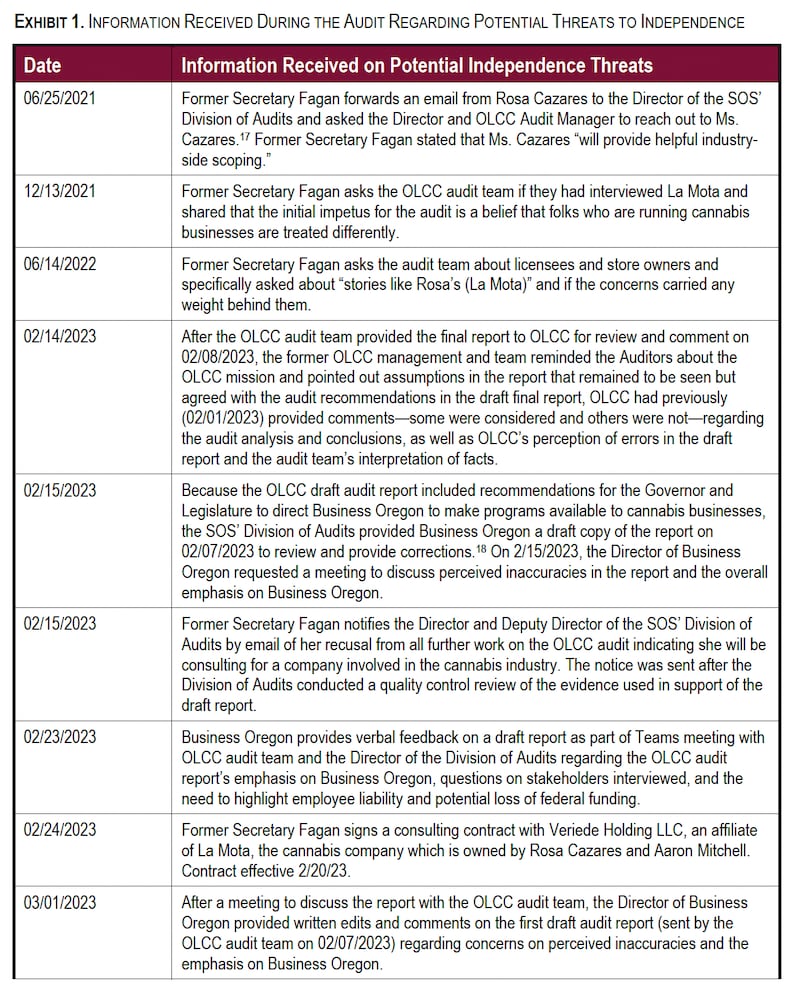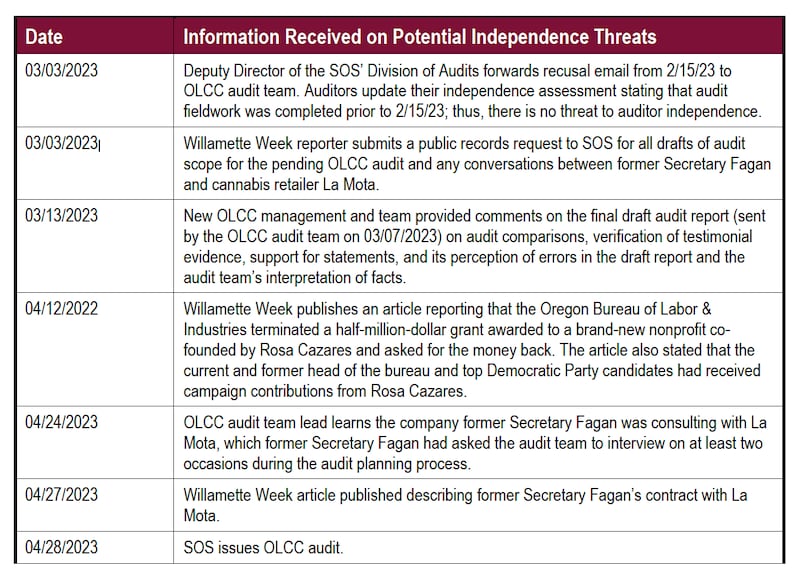The Oregon Department of Justice today released the findings of an outside investigation into whether an audit of the Oregon Liquor and Cannabis Commission released earlier this year was inappropriately influenced by top campaign donors to former Secretary of State Shemia Fagan.
Fagan resigned May 2 after WW revealed she had taken a consulting contract to work for the founders of cannabis chain La Mota. That same week, her office released an audit of the OLCC, which regulates La Mota and other cannabis companies.
The investigation, conducted by California firm Sjoberg Evashenk Consulting, sought to answer whether the agency audit—which in its final form advocated for less stringent regulations on the cannabis industry—complied with best practices.
The investigation stopped short of concluding that the audit itself was corrupted. But it did find that the Audits Division of the Secretary of State’s Office had plenty of warnings that Fagan’s conduct could compromise the perceived or actual independence of the audit—and did not adequately respond to those red flags.
In particular, investigators found, WW had submitted a public records request for the audit’s scope “and any conversations between former Secretary Fagan and cannabis retailer La Mota.” (See the state’s timeline of independence threats below.)
The firm recommended that the Secretary of State’s Office remove the audit from its website and reassess its fairness and integrity.
“Given the known threat to the independence of the audit organization (the Office of the Secretary of State) and the impact the perception of this threat has had on the OLCC audit report, we recommend that the SOS pull the audit report from the publicly accessible website and perform additional audit work,” the report concludes.
“We concur in that recommendation,” wrote Attorney General Ellen Rosenblum in a letter to Gov. Tina Kotek dated today. (Disclosure: Rosenblum is married to the co-owner of WW’s parent company.)
Current Secretary of State LaVonne Griffin Valade, however, declined to remove the audit from the state website, saying she would instead conduct her own investigation. “Depending on the results of that examination, I may take additional action and will inform the public as appropriate,” she added.
Gov. Kotek did not appear interested in fighting that battle. “Secretary Griffin-Valade has years of experience as a widely respected auditor,” the governor said in a statement, “and I expect that this report will inform her ongoing efforts to make certain that Oregon’s audits are objective, independent, and meet professional standards.”
Today’s findings confirm much of what WW first reported in April and May. Records obtained and reported on by WW this spring showed that Fagan asked audit staff multiple times in 2021 and 2022 to speak with embattled cannabis CEO Rosa Cazares about the scope of the audit. Cazares and her longtime on-and-off partner Aaron Mitchell are the CEO and owner, respectively, of the embattled La Mota cannabis company.
Records also showed that Cazares provided feedback on the description of the audit scope to Fagan—calling into question the audit’s independence. Moreover, it was not until the audit was substantially finished that Fagan recused herself in February from any involvement in it due to her newly inked consulting contract with Cazares and Mitchell.
Cazares and Mitchell were also top donors to Fagan’s election campaigns over the past two years. Fagan signed a contract with the couple to provide cannabis regulation consulting for $10,000 a month. Fagan resigned from office after WW first reported on the contract.
Today’s DOJ report includes the following timeline of threats to the audit’s independence:



